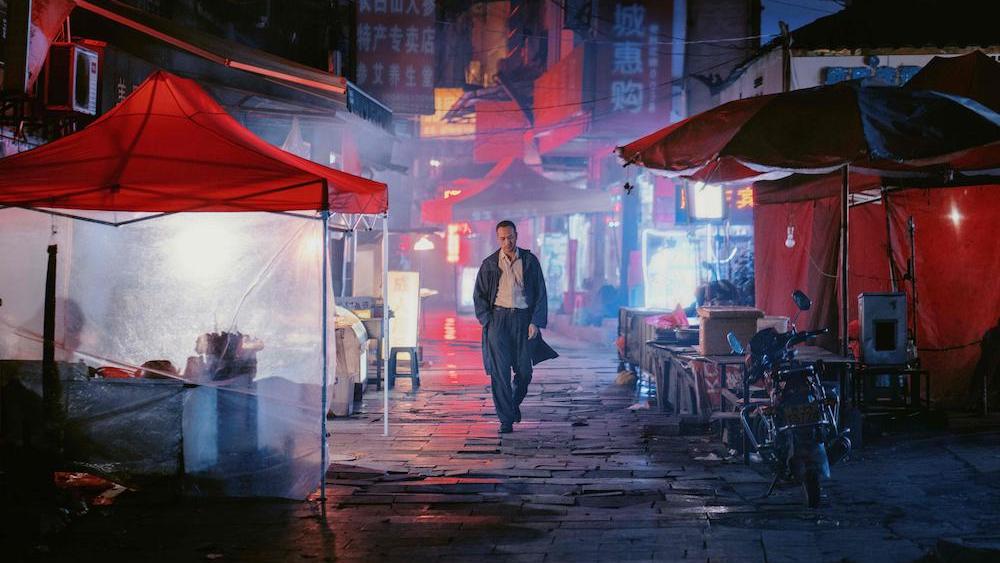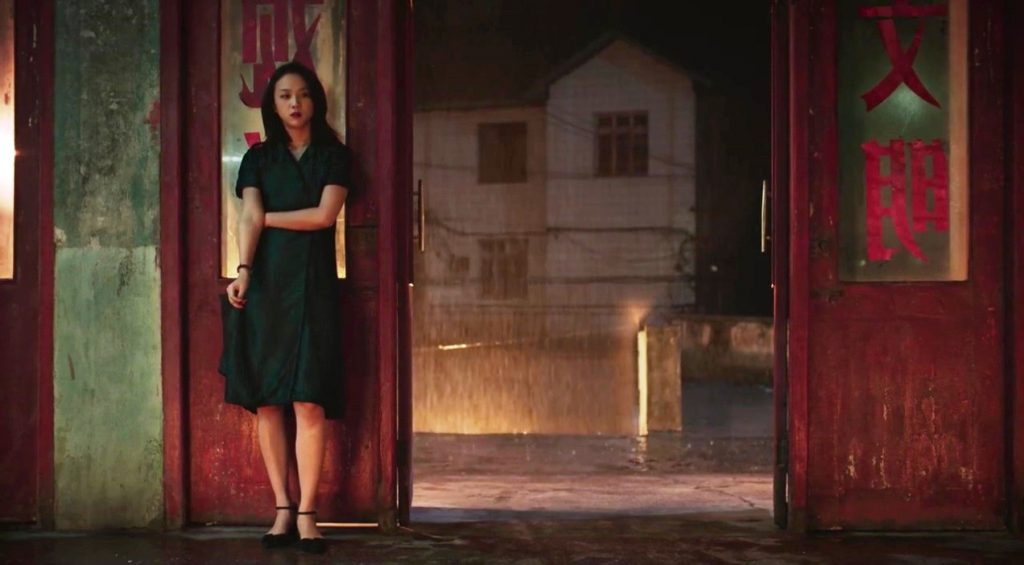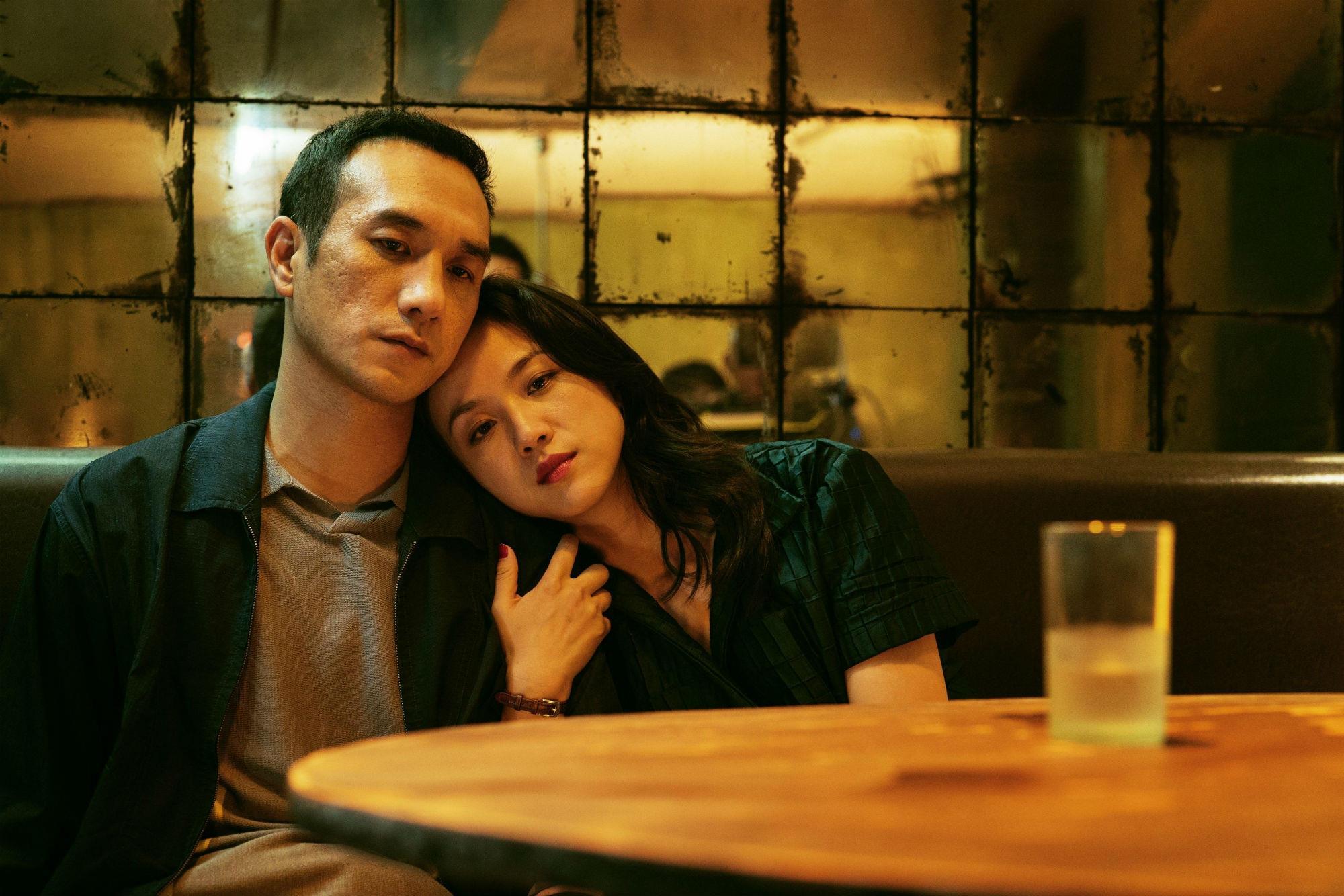First of all, I will admit, no human being is truly capable of explaining Bi Gan’s Long Day’s Journey Into Night, that is, other than Bi Gan. This is a fact. Which makes my title for this post, complete rubbish and false advertising. But, in spite of this fact, I’m going to give it a go, all the same. Our fantastic Editor-in-Chief, CY, is actually responsible for this mental trainwreck of a film. And so I’d appreciate it if you harassed her thoroughly in the comment section for totally ruining more than one night of sleep as a result of this, her, utterly careless movie recommendation. But in spite of the impossibility of it all, I give you: The Confusing Movie Long Day’s Journey Into Night Explained…
If you haven’t seen the movie yet, it really is a glorious movie to behold, even in spite of its dauntingly confusing narrative. The cinematography is really fantastic for such a low budget enterprise. Long shots circling around small villages. A feeling of naturalism exudes throughout the film. It’s as if we are being treated to these realistic experiences that have taken over entire towns and villages over the course of its 2 hour and 15 minute run time. There are several ultra long cuts in this film that last upwards of ten, maybe fifteen, minutes maybe? And in these single cuts we watch the comings and goings of entire villages. Townspeople come and go. And these cuts HAVE to be scripted, they are too long, and too much is hanging in the balance of making them all come together this seamlessly. But it’s this ambiguous, and haunting love story that is the real draw here. Here, if you haven’t seen the movie yet, (which, you can watch here or here) check out this trailer, and then those of us that have watched the film will dive in and start the hard work of unpacking it.
A super high level overview of the film’s plot might actually help you follow my walk-through a little easier. (Yeah, it’s that complicated.) Long Day’s Journey Into Night tells the story of Luo Hongwu’s (Huang Jue) return to his hometown Kaili. He is returning in order to attend his father’s funeral. It turns out that Luo had fled from the town years before. While there, Luo remembers back to the when a friend of his named Wildcat (played by Lee Hong-chi) died. While in Kaili, he begins looking for a woman he had fallen in love with years before, Wan Qiwen (played by Tang Wei). And it’s the memories of their time together that haunt him throughout the film. And that is what causes the movie to be so daunting, we flip seamlessly from the past, to the future, without much of a hint as to what is what. Worse? It could very well be that Luo Hongwu isn’t the most honest of narrators. Heck, he may not even be remembering things correctly. When have the rose-colored glasses of love ever been great at truth telling and narration? Yeah, never. So that is the lens and filter through which we are experiencing this movie. Keep that in mind as we go.
Long Day’s Journey Into Night Walkthrough
As the movie opens, we learn that there is a book, with a green cover, that is a really important to the narrative arc of this movie. We don’t really grasp where it came from, or why it’s important, but it is driving much of this story. It’s a book that we learn was stolen from a house by Tai Zhaomei and Wan Qiwen. Wan had decided she loved the romantic sentiment of the book, and that she would give it to someone that meant everything to her. (Which turns out to be Lou Hongwu). I have a theory that the story of this movie is a story that is coming from the green book entirely. But we’ll get to that later.
I mentioned that the story opens with Luo coming back to Kaili. His father has passed away, and he used to drink in front of a broken clock. (Les Miserables anyone?) Luo and his stepmother split his father’s things, she kept his restaurant, he gets his father’s van. Luo pulls a photo from the dead clock and tracks the person in the photo down in a nearby prison. Which is where we learn about the provenance of the green book. Tai Zhaomei, the woman in jail, had traveled with Wan to Kaili, where Wan is sold into a marriage by a man with bald spots named Zuo. Realizing that her life might change for the worst, Wan and Tai get a photo taken. But when Tai is later arrested for theft, she mailed the photo back to where they had taken it, Kaili.

We start to realize that though Wan is married off, she would occasionally leave her husband and sneak back to Kaili. She’d come and go at will. And during these moments together Lou and Wan would go watch movies together during their fast flings. And as Luo is remembering back to their trysts he mentions to us:
“The difference between a movie and a memory is that movies are always false. One scene follows after another. But memories mix truth and lies. They appear and vanish before our eyes.”
See? Is this a memory? Or is it a self aware movie remake of a story from the green book? Either way, this thing is lying to us throughout. But when? How? Why? Regardless, older Luo is desperate to find Wan, and so he attempts to track down Chen Huizan…of which, there happen to be two. And older Chen, and a younger. The younger Chen is 36, married, and is residing in Panghai County, Guizhou. Luo is able to find her husband, who runs a hotel in Panghai.
During one visit between Luo and Wan while they were younger, Luo learns that Wan had an abortion after their last visit. He also learned that Zuo would be coming back to Kaili, and Zuo had promised Wan that no matter where she ran, he would always find her. And a little later he actually does find her, and he captures both Luo and Wan. It’s unclear how this episode ends, but afterwards, we see that Wan convinces Luo to kill Zuo in a movie theater. He’ll shoot him through the back of his chair when shooting happens on the screen. Does he do it? We don’t know – he sits down behind him in the theater, and he seems ready to do it. We can only assume that he does it.
At the hour and ten minutes mark is when the movie changes dramatically. Our older Luo goes to a movie, sits down, and puts 3D glasses on to watch the film. And when he does that, the movie (the theatrical version anyway) switches to 3D as well. And then, there on the movie screen is our older Luo. Now, we have a new layer of lies to consider. It could be that we are now experiencing a story of memories, while embedded in a movie simultaneously. Lies, on top of lies, and on top of that, some love poetry to boot!
As the 3D movie begins, our older protagonist Luo, is trapped in a maze of mine tunnels. But a kid promises to help him get out of the maze. Eventually Luo arrives at the Wild Pomelo Karaoke competition. And Luo wanders into a gambling and pool hall being run by a woman named Kaizhen. And Luo and Kaizhen discover they both have Kaili in common. Kaizhen is hoping that her boyfriend will eventually take her to Kaili.
Now, Luo spins a paddle, and the camera flies across town. How? Why? Well, there is a reference in the green book that said that if you recited a spell that is referenced in the book that the house would begin to spin. The spinning will come back again…just wait for it. But, for now, know that the flying shot, the spinning paddle, the glorious weightlessness of it all, is all a reference back to the green love poetry book.
After landing, Luo helps a woman and a man who are in a desperate argument. And after helping, Luo asks for her most valuable possession, which is a watch. (This is a reference back to Tai Zhaomei and Wan Qiwen, when they broke into a house only to steal the most valuable possession, and Wan steals the green book. And all of this “most valuable possession” business really feels like a reference to lore, myth, or some sort of backstory that I am not familiar with. Anyone with any clues as to what is happening here?) And after receiving the watch, takes it to Khaizen, who is getting ready to go on stage, and gives it to her. “You can’t just give watches to people – it’s a symbol of eternity, and, it’s broken.” Hahahah. There is so much here I can’t even figure out where to begin. Luo gives Khaizen a symbol of eternity that is broken. Hrm. Is it now a symbol for what could have been, but isn’t? After receiving the watch, she gives him a sparkler. “You can’t just give a firework to someone, they are a symbol for how brief our existence is.” A broken watch and a sparkler – basically the symbols of two star-crossed lovers?
Well, with that, while waiting for her turn on stage, the two retreat to a house that is burnt out. And while there, Khaizen tells Luo that if you recite a spell that the house would begin to spin. And it’s then that the two talk about dreams, and whether or not we can know if we are actually dreaming or not. And they comment about how dreams are actually lost memories.
After a bit of conversation, while sitting on the bed, the room begins to spin, and the two begin to kiss. And I have to say that this is a brilliant shot. Somehow they managed to mount the camera to the bed, and then spin the two of them and the camera around the room, while constantly keeping the crew/cameraman out of the shot. And then the camera leaves the two, and heads back to the sparkler that is still going back where they originally lit it. The End.

Movie Narrative Discussed
The entirety of this movie is unreliable. Not because it doesn’t fit together, but because it tells us that it’s unreliable. Over and over again it tells us that movies are unreliable. OK. But it also tells us that memories are mixed with truth and lies. And this movie is actually filled with memories. It’s triply false. So if the movie is false, then what do we take away from this experience? Nothing? No, no, there is a lot to take away from this film regardless of its falseness.
I’m not old, per se, but I’m now old enough to realize that most of your life becomes memories and regret. Your heyday is probably already over, regardless of how old you are. And you probably spend a large swath of your time on this life reminiscing and remembering the past. Luo seems to be doing that throughout this film. But, not only is he remembering the past, he’s chasing it. He’s attempting to find his lost love, to restore his life to that moment before it all went sideways. Luo eventually finds Wan within the movie. But her name is Khaizen…she’s familiar, but different. We can confirm that Luo finds her because Khaizen and Wan Qiwen are both played by the same actress.
And although he finds her, it’s more like he finds an alternate memory of her. He wanders the maze of his mind, and discovers this woman. She definitely looks like Wan. But she isn’t Wan. At least, not in this reality. Still, Luo persists, and while he is able to come up with a “valuable possession” that hints at infinite, it turns out to be broken. Hinting at the failure of our hopes, dreams, and desires. That even the most beautiful of loves, ultimately ends. She in turn gives him a symbol that hints at the hot fire of passion…a firework that ultimately tells of the impermanence even of love.
But if we step back a second, and if we look at the larger narrative, this thing is a dissonant mess. Think about it. Luo and Wan hit it off one day, but she already been sold off into a marriage. A marriage with a hit-man who is determined to keep her from running away. They eventually hook up a few times as she is able to get away from Zuo and her unnamed husband. Over the years, she gets pregnant, and she aborts the child. Zuo eventually finds them together again, and makes it clear they aren’t to see each other anymore. So Wan convinces Luo to murder Zuo. Afterwards, the town finds out about the two, and they are irrevocably split apart. Time passes and Luo decides he’s got to find her again. His father is dead, his friend is dead. He needs to reconsider what is really most important to him…and that is Wan. So he goes looking for her – and ultimately goes to see a movie. And it is in this movie (fiction/100% lies) he is able to find Wan/Kaizhen. But all we learn from this moment is that the fantasy of eternal love, and eternal life, are all myths.
The movie wants us to realize that one thing here is clear. Romanticism is nothing but false hope that can never be found or pinned down. The search for it is nothing but hopelessness. And I think I buy what this film is selling. Chasing after “perfection” is a really bad idea. Grass is always greener and all that. But more importantly, we ignore the reality we have in front of us when we refuse to be happy in the moment we are given. To always be Uncle Rico, reliving the big game, when the coach didn’t put you in, is to lose context with the larger picture of life that you have been given.
I don’t know. This is a hard one. It is a movie that is difficult enough just piecing it back together again. But deriving a meaning from it? What do you think happened? Maybe we can hash it out together in the comments below. If you are looking for a movie that is similar to this, this sort of half dream, half reality, dreamy type quality, I can’t recommend Starfish enough to you all. It’s definitely 100% this. And just yesterday I got an email from someone saying how they had a God experience while watching it. So, consider it a two-fer? hahaha.
Edited by: CY

